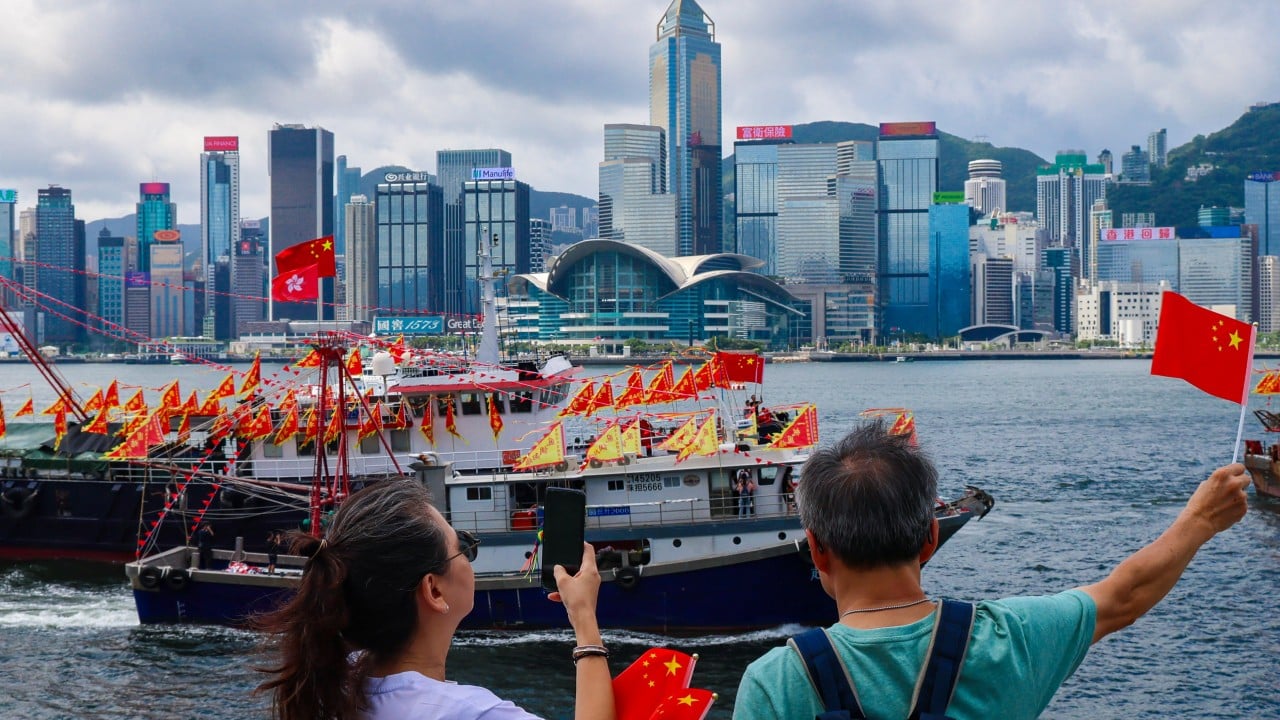Hong Kong’s political system will be an example for the rest of the world in five to 10 years, Beijing’s top envoy in the city has predicted, while reiterating China will not be cowed by sanction threats.
Cui Jianchun, the commissioner of the Chinese foreign ministry’s office in Hong Kong, also said on Tuesday that democracy should not be measured simply in terms of elections.
“I do believe that in the coming five or 10 years, you will recognise Hong Kong’s political system has set a very good example to the international community because Hong Kong … can get the good practices, the successful story from the mainland, and also can combine the experience from the international community,” Cui told a press conference.
Cui was appointed to the post in April after his predecessor Liu Guangyuan was transferred to Beijing’s liaison office as a deputy director.
The commissioner said the 2019 social unrest was a watershed moment for the city, underscoring the importance of Hong Kong establishing its own system in the face of a new international order.
Beijing revamped the local electoral system in 2021 to ensure only “patriots” held power after imposing a national security law on the city the year before, rewriting the political landscape.
The number of directly elected seats was slashed from 35 to 20 in an expanded 90-member legislature, with the remaining ones returned either by trade-based functional constituencies or a powerful committee packed with Beijing-friendly members.
All hopefuls were pre-vetted by officials determining their degree of “patriotism”.
At the time, some Western countries released statements expressing “grave concern over the erosion of democratic elements” in the Legislative Council election.

Sharing his views on democracy and elections, the Beijing envoy said each country developed its own path to democracy, based on their circumstances.
“Singapore and China, before elections, we have selections. Think about this, selections, if your physical condition is not fit, how can you lead a country?” Cui said.
He added that China would not be “scared” by threats of sanctions from the West but hoped to continue to resolve conflicts via communication.
The United States earlier said it was preparing to impose new visa restrictions on Hong Kong officials deemed “responsible for the intensifying crackdown on rights and freedoms” in the city following the enactment of a domestic national security law.
In 2020, Washington slapped economic sanctions on 11 current and former Chinese officials following Beijing’s imposition of the national security law on Hong Kong.
“Till today, I’ve seen … 62 consuls general in Hong Kong. None of them said sanctions are right. Everyone is supporting Hong Kong and the national security laws we implement,” Cui said.
Among the diplomats and business representatives he has met were US Consul General Gregory May. Cui described his conversation with May as a mutual expression of concern over law enforcement and the judicial system while admitting to the need for candid communication and exchange between the two countries.
“Both sides have expressed concerns over law enforcement and the judiciary system,” Cui recalled. “I have expressed my position that Hong Kong has an independent judiciary system, so everyone should respect this kind of system.”
Separately, addressing Hong Kong’s ongoing bid to join the Regional Comprehensive Economic Partnership, a free-trade agreement among 15 countries in the Asia-Pacific region, Cui said the city “is working hard” towards the goal, and pledged to aid the city’s application during his tenure.
He also called on foreign governments to back the city’s bid.


